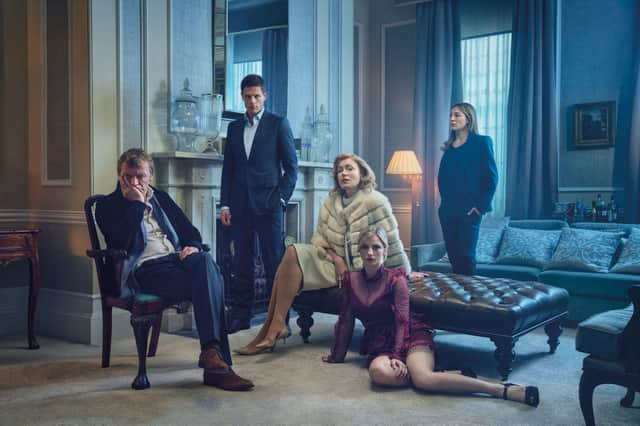McMafia is not what most organised crime in Britain really looks like


This article contains affiliate links. We may earn a small commission on items purchased through this article, but that does not affect our editorial judgement.
McMafia, a new BBC drama, is glitzy, glamorous and seductively appealing. Loosely based on Misha Glenny’s engaging and successful book on global organised crime, the series takes viewers on a journey from the bright lights of London to the beaches of Tel Aviv and the opulence of Versailles, with constant allusions to Moscow, the US and elsewhere.
Advertisement
Hide AdAdvertisement
Hide AdMcMafia’s unremitting focus on business and financial jargon has helped to challenge the portrayal of organised crime as being all about blue-collar crimes related to drugs importation and people smuggling. McMafia is instead rooted in the white-collar crimes associated with corporate finance. That is laudable. Yet despite this, the show continues the trend of showing organised crime through the prism of globalisation, technological shifts and international criminal networks. By doing so, it paints a partial and, frankly, traditional picture.


And this is not what we have seen in our own research studies on organised crime in Britain.
Conducting research with organised criminals is never easy – a fact brought home to us while sitting in a seedy cafe in Manchester, waiting for a “hitman” to turn up. Academic researchers rarely get to interview people actually involved in organised crime and when they do, it is usually only because prison contacts have been prepared to vouch for the fact that we can be “trusted”. The picture that these contacts paint is a million miles away from the glossy ones which we have seen in McMafia, even if making money is often the common goal.
While McMafia has rightly drawn praise from reviewers, its model of organised crime is based largely on an Italian mafia model known through films such as the The Godfather. That model is about family loyalty and criminal opportunities being passed on from one generation to the next. This “mafia mythology” underpins most media portrayals of organised crime, and few dramas have managed the rare quality of The Sopranos, which managed to both reinforce this mafia mythology, while proving equally capable of sending it up.
Advertisement
Hide AdAdvertisement
Hide AdThe hitmen we’ve encountered are not the well-built, shaved-headed Russians of McMafia who kill with a caviar knife, but are instead involved in a brutal act of final arbitration in humdrum business disputes. We found their costs of taking a life could be relatively low, starting from around £200.


From cannabis cultivation to protection rackets, contemporary British organised crime is shaped by the forces of globalisation and deindustrialisation which have increasingly normalised criminal activity. Yet while organised crime has been democratised and is no longer the narrow preserve of professional family crime firms such as the Krays and Richardsons, violence remains the ultimate arbiter of disputes.
Seizing opportunities
The mafia model is rare in the British context, where organised crime has much more to do with short-term criminal opportunities which emerge quickly, get exploited by groups of men who come together and then dissipate when that opportunity passes.